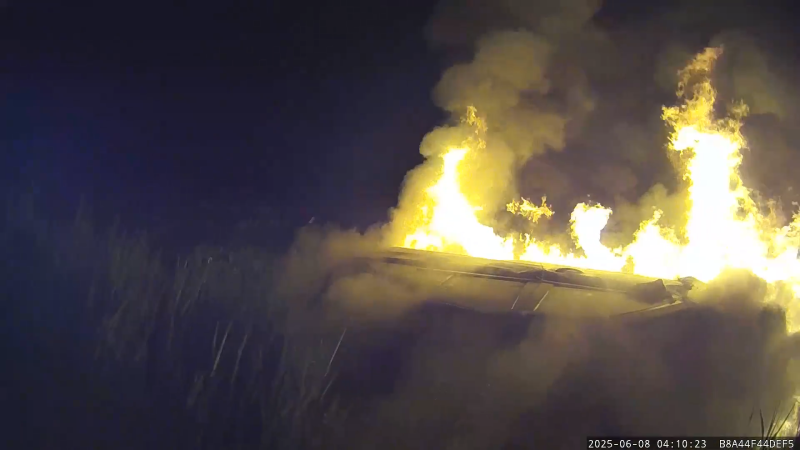Strange Trades On Wall Street: Unconventional Investments Explained

Welcome to your ultimate source for breaking news, trending updates, and in-depth stories from around the world. Whether it's politics, technology, entertainment, sports, or lifestyle, we bring you real-time updates that keep you informed and ahead of the curve.
Our team works tirelessly to ensure you never miss a moment. From the latest developments in global events to the most talked-about topics on social media, our news platform is designed to deliver accurate and timely information, all in one place.
Stay in the know and join thousands of readers who trust us for reliable, up-to-date content. Explore our expertly curated articles and dive deeper into the stories that matter to you. Visit Best Website now and be part of the conversation. Don't miss out on the headlines that shape our world!
Table of Contents
Strange Trades on Wall Street: Unconventional Investments Explained
Wall Street, the epicenter of global finance, is known for its high-stakes games and lucrative deals. But beyond the familiar stocks and bonds lie a world of unconventional investments, often shrouded in mystery and intrigue. These "strange trades," as some call them, can involve anything from betting on the weather to investing in obscure commodities. Understanding these unconventional approaches can offer a fascinating glimpse into the diverse landscape of modern finance and potentially uncover lucrative, albeit risky, opportunities.
What Constitutes a "Strange Trade"?
The term "strange trade" is subjective, but generally refers to investments that deviate significantly from traditional asset classes. These often involve higher risk and potentially higher reward, attracting sophisticated investors seeking diversification or alpha (outperformance). Examples include:
-
Weather Derivatives: These contracts offer payouts based on specific weather events, like temperature or rainfall. Farmers, energy companies, and even insurance firms utilize these to hedge against climate-related risks. Think of it as insurance against an unusually hot summer impacting crop yields.
-
Volatility ETFs: Exchange-traded funds (ETFs) that track the volatility index (VIX), a measure of market uncertainty. Investing in these can be a speculative bet on market fluctuations, potentially profiting from increased fear and uncertainty. However, this is a highly volatile strategy.
-
Commodities Beyond the Usual: While gold and oil are common commodities, some investors delve into more obscure markets. This can range from rare earth minerals crucial for technology to agricultural products like cocoa or coffee beans. These investments offer diversification but require thorough research and understanding of specific market dynamics.
-
NFT Investing: Non-fungible tokens (NFTs) represent ownership of unique digital assets. While the market is volatile and rife with speculation, some see long-term potential in certain NFT collections, particularly those backed by established artists or brands. .
The Appeal of Unconventional Investments:
Why would sophisticated investors venture into these seemingly risky arenas? Several factors contribute:
-
Diversification: Unconventional investments can offer diversification beyond traditional portfolios, potentially reducing overall risk. Correlation with traditional asset classes is often low, acting as a buffer during market downturns.
-
High Potential Returns: While riskier, these investments can offer significantly higher returns than more conservative options. Successful bets in niche markets can yield substantial profits.
-
Hedging Against Specific Risks: Some unconventional investments, like weather derivatives, act as insurance policies, mitigating potential losses from unforeseen events.
The Risks Involved:
It's crucial to acknowledge the significant risks associated with these investments:
-
Illiquidity: Many unconventional assets are difficult to buy or sell quickly, making it challenging to exit a position when needed.
-
Volatility: Price fluctuations can be extreme, leading to substantial losses in a short period.
-
Lack of Transparency: Some markets lack the transparency and regulation of traditional exchanges, increasing the potential for fraud or manipulation.
Conclusion:
Strange trades on Wall Street offer a glimpse into the innovative and often risky world of alternative investments. While they can provide diversification and high potential returns, it's imperative to thoroughly research, understand the associated risks, and only invest what you can afford to lose. Consult with a qualified financial advisor before venturing into these uncharted waters. Remember, due diligence is paramount in navigating the complex world of unconventional finance.

Thank you for visiting our website, your trusted source for the latest updates and in-depth coverage on Strange Trades On Wall Street: Unconventional Investments Explained. We're committed to keeping you informed with timely and accurate information to meet your curiosity and needs.
If you have any questions, suggestions, or feedback, we'd love to hear from you. Your insights are valuable to us and help us improve to serve you better. Feel free to reach out through our contact page.
Don't forget to bookmark our website and check back regularly for the latest headlines and trending topics. See you next time, and thank you for being part of our growing community!
Featured Posts
-
 Genie Francis Mourns General Hospital Co Star Chris Robinson
Jun 13, 2025
Genie Francis Mourns General Hospital Co Star Chris Robinson
Jun 13, 2025 -
 Spending Review Analysis Impact On Transportation Costs And Employment
Jun 13, 2025
Spending Review Analysis Impact On Transportation Costs And Employment
Jun 13, 2025 -
 Town Hall Controversy Lawlers Actions Scrutinized After Blocking Lohud Reporters Access
Jun 13, 2025
Town Hall Controversy Lawlers Actions Scrutinized After Blocking Lohud Reporters Access
Jun 13, 2025 -
 Thomas Frank Bolsters Tottenham Coaching Team With Justin Cochrane Appointment
Jun 13, 2025
Thomas Frank Bolsters Tottenham Coaching Team With Justin Cochrane Appointment
Jun 13, 2025 -
 Russias Jet Seizure Aer Cap Files Massive Insurance Claim
Jun 13, 2025
Russias Jet Seizure Aer Cap Files Massive Insurance Claim
Jun 13, 2025
Latest Posts
-
 Us Open 2024 Teenager Mason Howells Inspiring Rise To Success
Jun 14, 2025
Us Open 2024 Teenager Mason Howells Inspiring Rise To Success
Jun 14, 2025 -
 Heroic Rescue Cnn Covers Bystanders Saving Woman From Burning Car
Jun 14, 2025
Heroic Rescue Cnn Covers Bystanders Saving Woman From Burning Car
Jun 14, 2025 -
 Man Successfully Sues Parents For Coerced Move To Africa
Jun 14, 2025
Man Successfully Sues Parents For Coerced Move To Africa
Jun 14, 2025 -
 New Music Friday Listen To The Latest Tracks From Jonas Brothers J Hope And Others
Jun 14, 2025
New Music Friday Listen To The Latest Tracks From Jonas Brothers J Hope And Others
Jun 14, 2025 -
 Elon Musk Teases Teslas Game Changing Next Product Launch Imminent
Jun 14, 2025
Elon Musk Teases Teslas Game Changing Next Product Launch Imminent
Jun 14, 2025
